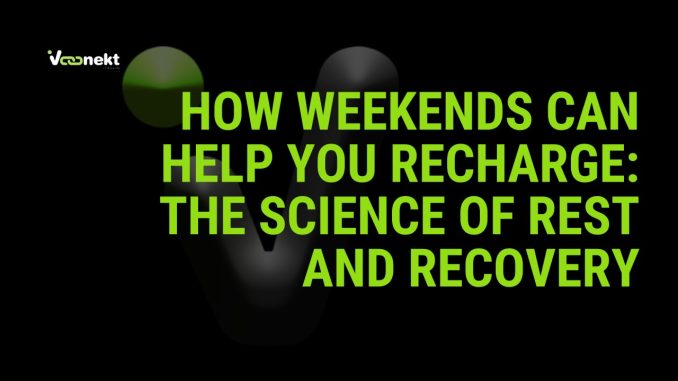
In conversations about performance, whether in athletics or business, the emphasis often falls on action—training harder, working longer, or pushing through barriers. Yet science consistently shows that rest and recovery are just as critical as effort in achieving sustainable success. Far from being wasted time, rest is an active process during which the body and mind repair, adapt, and strengthen. For professionals balancing demanding schedules, understanding the science behind rest and recovery can transform the way they approach productivity, resilience, and long-term health.
At the physiological level, recovery is the period when the body rebuilds itself after stress. Physical exertion, whether from exercise or simply the strain of long workdays, creates small disruptions in the muscles and nervous system. During recovery, the body repairs these microtears, replenishes energy stores, and strengthens tissues to prepare for future challenges. Without adequate recovery, the process stalls, leading to fatigue, weakened immunity, and decreased performance. The concept applies beyond athletics. Just as a runner risks injury by training every day without rest, a professional who consistently pushes through late nights and high-pressure deadlines without breaks risks burnout and declining effectiveness.
Sleep is perhaps the most powerful form of recovery. Neuroscience reveals that during sleep, the brain engages in vital housekeeping functions, clearing out metabolic waste products that accumulate during waking hours. Deep sleep stages are linked to physical repair, while REM sleep supports cognitive processes like memory consolidation, creativity, and problem-solving. For business leaders and knowledge workers, these functions are not luxuries but essentials. A rested brain makes sharper decisions, processes complex information more efficiently, and navigates uncertainty with greater clarity. Chronic sleep deprivation, on the other hand, impairs judgment in ways comparable to alcohol intoxication, a fact with serious implications for high-stakes professional environments.
Beyond sleep, active rest techniques play a vital role in recovery. Practices such as mindfulness meditation, controlled breathing, or even leisurely walks activate the parasympathetic nervous system, often referred to as the “rest and digest” mode. This system counters the stress-driven sympathetic response that dominates during high-pressure work. By intentionally engaging in activities that promote calm, professionals allow their bodies to reduce cortisol levels, lower heart rate, and restore balance. Scientific studies show that regular engagement in these practices improves focus, reduces anxiety, and enhances resilience, making them powerful tools for navigating the stress of demanding careers.
Nutrition and hydration also underpin the science of recovery. After periods of exertion or stress, the body requires nutrients to rebuild and restore balance. Protein aids in muscle repair, carbohydrates replenish depleted glycogen stores, and antioxidants reduce inflammation caused by stress responses. Even in professional contexts, small adjustments such as balanced meals, regular hydration, and avoiding excessive caffeine or alcohol support more effective recovery. Just as businesses rely on resources to fuel growth, the human body depends on adequate input to sustain and repair itself. Ignoring these needs eventually leads to diminished returns, where effort no longer produces results because the foundation is weakened.
One of the more fascinating aspects of recovery is how it influences adaptation. In both physical training and professional development, growth does not occur during periods of exertion but during the recovery that follows. Muscles strengthen after rest, not during the workout. Skills deepen after reflection, not solely during active learning. This principle, sometimes called supercompensation, explains why cycles of effort and recovery are more effective than continuous strain. Professionals who allow time to step back from intense projects often return with sharper insights and more creative solutions. Recovery is not a pause from growth; it is the very mechanism by which growth occurs.
The psychology of recovery is equally important. Constant busyness creates the illusion of productivity, but without recovery, the mind loses its capacity for perspective. Psychologists emphasize the importance of detachment from work as a way to restore mental resources. This does not mean disengagement from purpose, but rather intentional shifts of focus. Activities such as spending time with family, engaging in hobbies, or immersing in nature allow the brain to reset. Research shows that individuals who take breaks and vacations not only report greater well-being but also display higher performance and innovation upon returning. In this sense, recovery is not indulgence but a professional strategy.
The business world itself offers metaphors for the necessity of recovery. Organizations that grow without pauses for reflection or restructuring eventually become overextended and fragile. Companies that invest in maintenance, renewal, and innovation during quieter periods tend to be more resilient. The same holds true for individuals. Building recovery into routines—whether through consistent sleep, mindful practices, or structured downtime—creates the reserves needed to handle crises and seize opportunities. Ignoring recovery, by contrast, may lead to short-term gains but ultimately undermines sustainability.
Importantly, rest and recovery are not one-size-fits-all. Some professionals find that quiet reflection restores them, while others recharge through physical activity or creative pursuits. The science highlights the underlying mechanisms—physiological repair, nervous system balance, and cognitive consolidation—but how these processes are supported can vary by individual. The key is intentionality, recognizing recovery as a deliberate practice rather than something that happens only when time allows. For those in leadership roles, modeling this approach sets a powerful example, signaling that sustainable success includes honoring the need for renewal.
In the end, the science behind rest and recovery reframes the conversation about performance. It reminds us that relentless effort without restoration is not a mark of strength but of imbalance. True resilience emerges from cycles of exertion and renewal, where the body and mind are given the opportunity to repair, adapt, and grow. For professionals navigating demanding careers, integrating recovery is not only a matter of health but also of strategy, ensuring that effort leads not to depletion but to sustainable achievement. Far from being a pause in the pursuit of success, rest and recovery are the very engines that drive it forward.